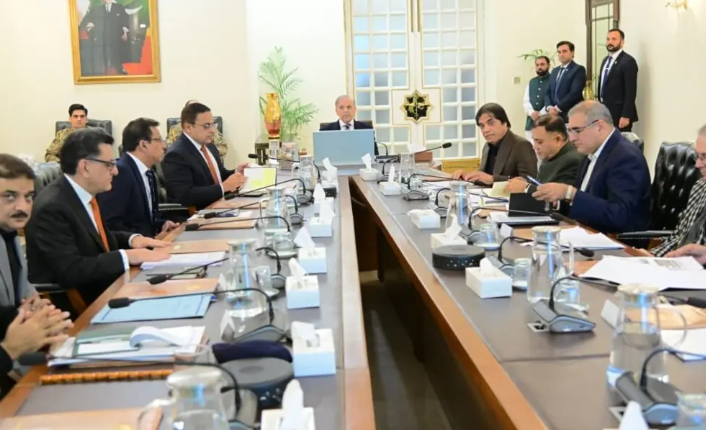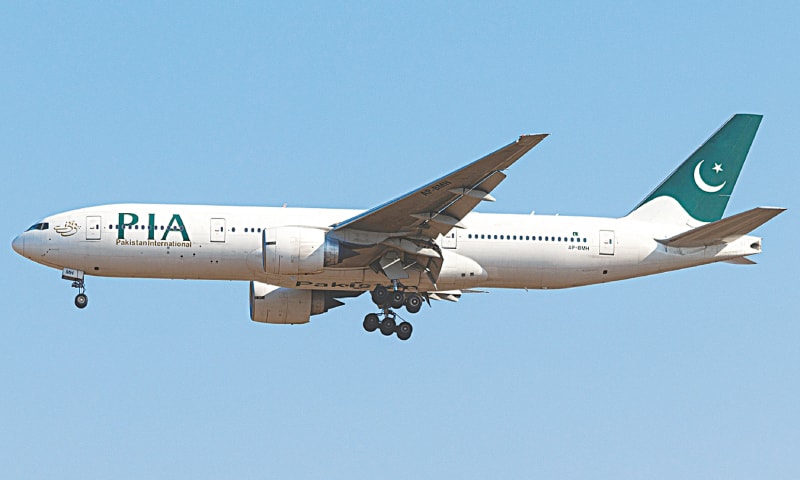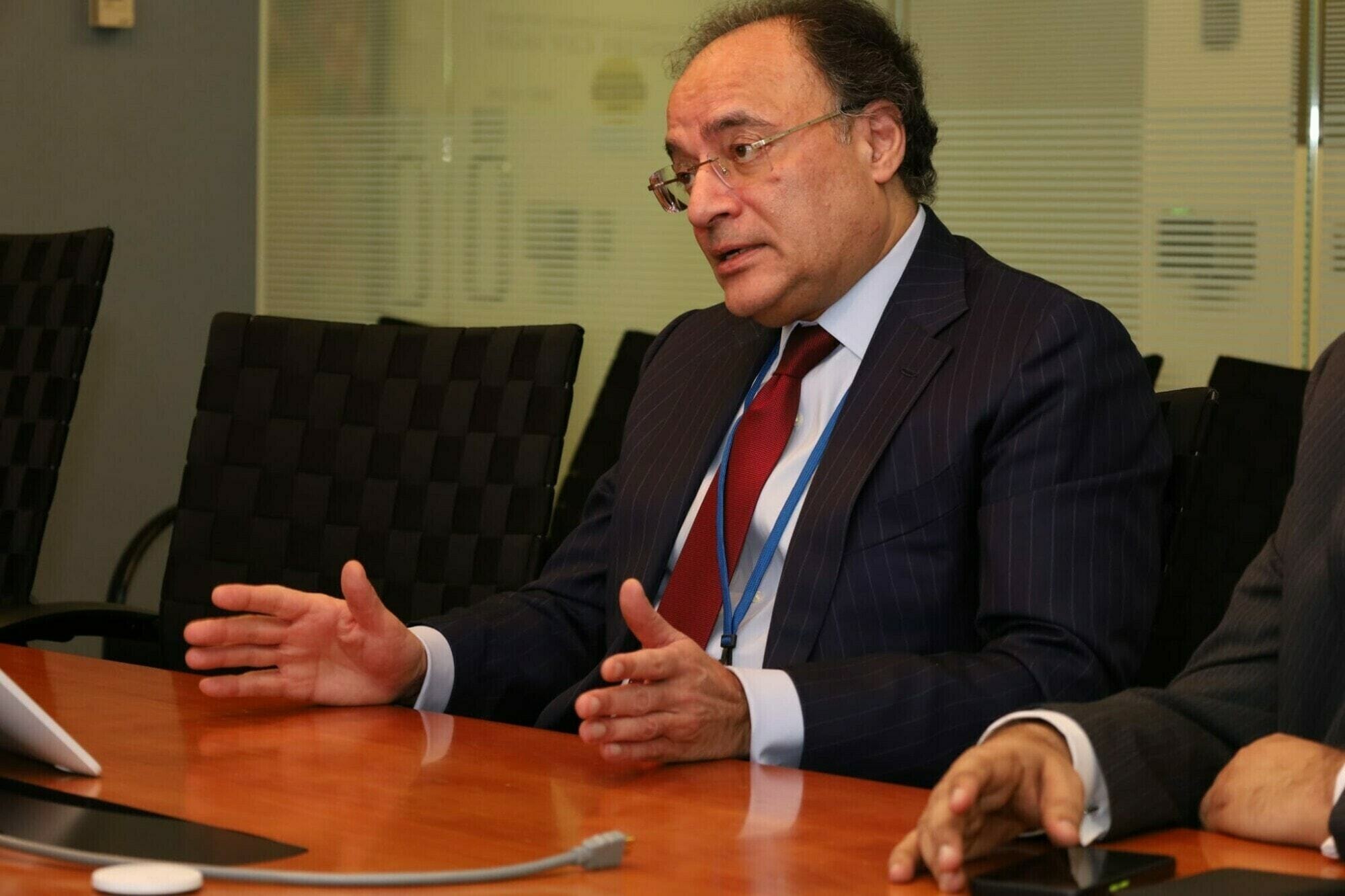PTBP Web Desk
Prime Minister Muhammad Shehbaz Sharif convened a crucial meeting at the Prime Minister’s House in Islamabad on Saturday to discuss a broad spectrum of initiatives aimed at modernising Pakistan Railways. The meeting brought together senior government officials, including Railway Minister Hanif Abbasi and Federal Minister for Economic Affairs Ahad Khan Cheema, to review ongoing projects and future plans.
The Prime Minister emphasised the pivotal role of the railway system in Pakistan’s economic growth and communication network. He praised the ongoing efforts for the rehabilitation and upgrade of Pakistan Railways and commended Railway Minister Hanif Abbasi and his team for their dedication to enhancing operational efficiency and service quality.
A major highlight of the meeting was the progress on digitalisation initiatives under the “RABTA” platform. Currently, seven digital portals are operational, 56 trains have been integrated into the system, and 54 railway stations have been digitised to streamline operations.
Key technological upgrades include:
- Free Wi-Fi: Available at Karachi, Lahore, Rawalpindi, and Faisalabad stations, with plans to expand to 48 more stations by December 31.
- Freight Online Booking System: Introduced to simplify cargo handling and improve efficiency for businesses and individuals.
- Digital Weighing Bridges: A pilot project has started at Karachi City Railway Station, with expansion planned for Pipri, Karachi Cantt, Port Qasim, Lahore, and Rawalpindi.
- AI Surveillance Cameras: 148 cameras installed at Rawalpindi Railway Station to enhance security.
- ATMs and Passenger Facilities: Installation of banking ATMs, high-quality waiting rooms, information desks, and improved food quality under the supervision of provincial food authorities.
These measures aim to modernise Pakistan Railways and make stations more user-friendly, secure, and technologically advanced.
The government is pursuing a Public-Private Partnership (PPP) model to optimise the use of railway properties, land, and services. The following outsourcing initiatives were highlighted:
- Passenger Trains: Four trains have been outsourced, with plans to outsource 11 more, generating an estimated Rs8.5 billion in revenue.
- Goods and Brake Vans: 40 vans outsourced, expected to bring Rs820 million.
- Cargo Express Trains: Two trains are being outsourced to generate Rs6.3 billion.
- Railway Hospitals, Schools, Colleges, and Rest Houses: Plans underway for outsourcing to improve services and operational efficiency.
- Railway Dry Ports: Lahore, Islamabad, and Azakhel dry ports are also included in the outsourcing strategy.
- Solar Energy Integration: 155 railway stations have been converted to solar energy, promoting sustainability.
Additionally, entities such as Railway Constructions Pakistan Limited, Pakistan Railways Freight Transportation Company, and Pakistan Railways Advisory and Consultancy Service have been closed to streamline operations.
The Prime Minister was briefed on critical infrastructure projects aimed at expanding and upgrading Pakistan Railways:
- Main Line Upgrades: Strategies are being finalised for upgrading Karachi-Kotri (ML-1) and Main Line-3 (ML-3) to modern standards.
- Thar Rail Connectivity Project: Execution in collaboration with the Government of Sindh to connect remote regions and boost regional trade.
- International Rail Links: Plans include launching the Islamabad-Tehran-Istanbul train service and initial work on the Kazakhstan-Uzbekistan-Afghanistan-Pakistan (KUAP) rail project, enhancing regional connectivity and trade opportunities.
During the meeting, PM Shehbaz Sharif directed Pakistan Railways to:
- Engage International Experts: Hire legal and economic specialists for projects related to regional and international connectivity.
- Adopt PPP Models: For railway properties, land, hospitals, schools, and commercial operations.
- Focus on Modernisation: Enhance digital platforms, security, and passenger services.
- Boost Revenue Generation: Implement outsourcing of trains, freight operations, and ancillary services to increase income streams.
These steps are designed to not only modernise Pakistan Railways but also strengthen its contribution to the national economy.
The meeting also reviewed ongoing efforts to improve passenger experience:
- Cleanliness and Hygiene: Outsourcing to improve maintenance standards at stations.
- Comfortable Waiting Areas: High-quality waiting rooms constructed at major stations.
- Information Desks: Established to guide passengers efficiently.
- Food Quality Monitoring: Provincial authorities ensure standards for food and beverages at stations.
Such initiatives are expected to make railway travel more attractive, safe, and convenient for passengers across the country.
With the strategic direction laid out by Prime Minister Shehbaz Sharif, Pakistan Railways is poised to undergo transformative changes. Key priorities include:
- Accelerating digitalisation and tech integration.
- Expanding regional and international rail connectivity.
- Increasing revenue through outsourcing and PPP initiatives.
- Enhancing passenger comfort, safety, and service quality.
- Strengthening operational efficiency and sustainability through solar energy and modern infrastructure upgrades.
These reforms aim to position Pakistan Railways as a modern, efficient, and economically significant transport network, contributing to national development and regional trade.




